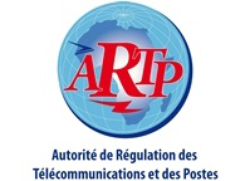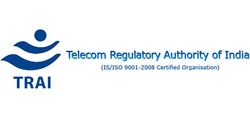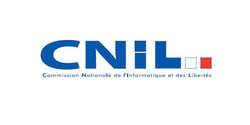Sectors
Compliance and Regulation Law Glossary

Compliance and Regulation Law Glossary

July 15, 2016
Breaking news

In Senegal, the Autorité de régulation des télécommunications et des postes (ARTP ; English translation: Telecommunications and Posts Regulatory Authority) has, just like all regulators, inherent powers to impose sanctions. In general, the important thing is not only to exercise this sanctioning power but to exercise it in a way that reinforces the authority of the Regulator. In this perspective, the new Sonatel sanction decision is important.
As a sanctions always carry a heavier weight when people are made aware of it, the Director General of the Artp issued a press release, that has been flagged as particularly important, and held a press conference (in French) on a particularly serious sanction imposed following what the Regulator considers as the non-fulfilment of obligations stemming from formal notices (which, by the way, the telecom operator challenges on the merits).
On 21 November 2014 indeed, the Sonatel was given a formal notice from the Artp to respect consumer rights. As the code of telecommunications provides since its modification in 2014, operators shall "prendre les mesures appropriées de dimensionnement de leurs réseaux de nature à garantir à leurs clients un accès ininterrompu à leur service client commercial ou technique en respectant un taux d’efficacité minimal" (translation: "take appropriate measures to size their networks in a way that provides their consumers with an uninterrupted access to their customer service (sales service and technical support) which would respect a minimum efficiency rate") set by the Regulator itself- as to, namely, ensure that the right of consumers to be informed is satisfied (as regards billing mechanisms) and that their calls to consumer services remain free of charge. As the Regulator estimated that the Sonatel was not complying with such regulations, it conducted a formal investigation and notified a statement of objections to the operator, before sending on 28 January 2015 a second formal notice for the same reasons.
On 14 July 2016, the Regulator imposed a sanction on Sonatel since the it still estimated that the operator's behavior still was not leading to a compliant situation as regards the consumer right to be informed. The sanction, as stated in the Sonatel decision, is 13 billion 959 million FCfa (c. €20m), i.e., 15% of Sonatel's 2015 turnover. The sanction decision also provides that if the operator does not enforce it, an additional penalty of 10m FCfa (c. €15,000) per day will be charged.
The operator, however, challenges this sanction insofar as it estimates that its behavior is not to be blamed. To support its claim, Sonatel avails itself from the fact that upon reception of the first formal notice, it undertook a 'progressive compliance' with the requirements process as regards its network, then let the Regulator know about it, etc. It is henceforth to lodge an appeal.
The issue at stake, therefore, is to know whether the obligations on operators are obligations regarding the means used (that is to say, means obligations), or, conversely, if they are obligations to produce results (performance obligations). If they are means obligations, then the operator is right. However, considering the efficiency and effectivity principes that are closely linked with the teleological nature of Regulation, it is more likely that such obligations are performance obligations.
For instance, in France, the Commission Informatiques et Libertés (French Data Protection Authority- CNIL) considered on 1 March 2016!footnote-42 that the obligations on operators to have accurate and complete data are performance obligations and not mere means obligations.
Thus, there is probably more to follow with this Sonatel decision. The day the press release was issued, the operator stated it intended to lodge a hierarchical appeal before the Minister.
The next day, the Director General of the Artp stated in the press (in French) that under the Senegal law, the appeal could only be lodged before a jurisdiction, or before... the Regulatory Authority itself (request for reconsideration - in French : "recours gracieux").
This situation is thus a great reminder that new illustrations of the interplays between Regulation and Politics can always be found.

July 4, 2016
Breaking news

Speaking to the press is a way for the Regulator to reach everyone, including policymakers, European institutions, and fellow Regulators who also seek to compete for space in the digital area.
As he reported: "Nous arrivons aujourd’hui, avec l'irruption du numérique, à un acte 2 de la régulation. Il y a 20 ans, on est passé du modèle PTT où l’Etat produisait le service public, au modèle d’État-régulateur qui a permis l’ouverture à la concurrence. Ce modèle vise à une bonne organisation du marché avec des outils de pilotage efficaces, mais parfois très intrusifs : les licences mobiles, qui sont des contrats assortis de sanctions administratives en cas de non-respect des obligations, ou le dégroupage, qui est une intervention sur la propriété privée… Aujourd’hui il nous faut franchir une étape nouvelle et nous projeter dans la suite, repenser nos outils pour permettre, en complément, une régulation plus focalisée, plus humble et plus agile". We can translate this passage as it follows : “As of today, considering the onset of digital, we are getting to a second phase for Regulation. Over the past 20 years, we went from the ‘PTT model’, where the State provided for public service, to a new Regulatory State model that enabled competition to thrive. This model aims for good market organization with effective management tools, which may be sometimes very intrusive: e.g., mobile licenses, which are agreements that include administrative penalties in the event of failure to comply with its provisions, or unbundled access, which relates to a State intervention on private ownership… Today, we need to take it another step further and plan for the future, reconsider our tools to allow for a Regulation that would be better focused, humbler and nimbler”.
Whatever “Phase 1” was would thus be already outpaced. Farewell stringent public service, so long market openings to competition. Such an understanding of Regulation was certainly consistent with the idea that Regulation was only meant to be temporary, namely considering the everlasting protection of personal data by the dedicated supervisory authority (Commission Nationale Informatique et Libertés, CNIL)…
We would then need to implement “Phase 2” and, as Sébastien Soriano advises, to “Regulate by the multitude”, which is "a concept that includes consumers, but also users, observers, and the civil society as a whole. The key question is how to use the power of information to get the greatest possible leverage on the market while relying on the multitude. The answer is clear: Regulation by data" ("La multitude, ce sont les utilisateurs, les observateurs, la société civile. Cela inclut les consommateurs, mais pas uniquement. Et la question centrale, c’est comment utiliser le pouvoir de l’information pour avoir un maximum d'effet de levier sur le marché et grâce à la multitude. La réponse, c’est la régulation par la data.").
Like all the others, the Telecom Regulator introduces himself as a sort of ‘natural’ Regulator for digital activities, as he relies on the key notion that is information. In doing so, he is seeking allies that are just as natural as he is— that is to say, consumers. Consumers fall indeed into the scope of the Regulator insofar as they provide him with the information he needs to Regulate the digital sector and space.
The Regulator thus does not define himself anymore as the one that protects consumers against the market, but as the one that binds the two together, transforming the complaint into a civic act: “There’s a problem. As a consumer, I am alerting you as a Regulator who has the means to regulate market failures and whom I shall let operate”.
In such a statement, the ARCEP not only becomes the ‘natural’ digital Regulator, but it also become the one that operates on the grounds of information brought by the web-user, who is protected by and who somehow benefits in return from the action of the Regulator.
Two concluding thoughts:
- What a nimble reasoning indeed from the Regulator, who had initially been created to be the ‘container Regulator’, and who is now becoming, since Phase 2 is on its way, a kind of ‘overall’ Regulator that regulates both the container and the content.
- This is a salient example that rationales and frameworks that were developed by the Banking and Financial Regulation are modelling Regulation in general: see whistleblowers, information, obsolescence of the ‘public service’.
Sept. 16, 2015
Events

March 12, 2015
Breaking news

The regulation of electronic communications is carried in India by an independent regulator, the Telecom Regulatory Authority of India - Trai..
This regulation aims in particular to develop competition in an important domestic market. For the development of competition, should be encouraged not only increase in consumption, new uses, innovation, but also the competition between suppliers.
For this, the portability of telephone numbers is essential. We find this issue of portability in other sectors, such as financial or energy sectors, but it is in the area of the phone portability turned into right because it is through the number that the person is called, or classified, or recognized
This portability is imposed with difficulty by regulators. The situation in India demonstrates.
The principle of number portability in the mobile phone sector was made by a regulation in 2009 by the Telecommunication Mobile Number Portability Regulations of 23 September 2009, the eighth addressing this issue.
Almost every year, a regulation adds to the previous regulations on this point. Thus, February 25, 2015, the regulator adopted a regulation 4 pages carrying the 6th amendment of the original text.
After the new system adopted by the regulator at the request of the Government who sent a letter to this effect November 23, 2014, as apparatus shown to increase the effectiveness of portability, it is mandatory that from may 3, 2015, any subscriber can change operator while keeping his phone, regardless of his place of residence in the country.
The difficulty comes precisely from the geographical vastness of the country, divided into 22 telecom service areas (called "circles"), the customer physically moving from one to another still having difficulty keeping his number.
Beyond the difficulty of passing the enactment of a principle to the reality of its application, since 6 years apart from each other, here we measure the importance of geography in Regulation.

Jan. 9, 2015
Breaking news

The United Kingdom is probably country of "self-regulation", many academics devote studies, regulators praise its merits, the legislation puts it in place. This is in the area of the press. The electronic media are regulated by OFCOM, but the written press is still self-regulated. British tradition remains so.
La presse britannique, dont on connait la variété du niveau, du Daily Mirror à The Economist et à propos de laquelle les scandales sont nombreux à propos des violations de vie privée et des méthodes pour acquérir les informations, est "autorégulée".
C'est pourquoi un rapport a été publié en 2012, le rapport Leveson, lui-même continuant à recommander l'autorégulation. Sur cette recommandation, a été élaborée le Press Recognition Panel (PRP), entré dans le système juridique par une "Charte royale" le 30 octobre 2013, articulé avec un organe de supervision, le Independent Monitor for the Press (IMPRESS), créé quelques mois plus tard. On ne sait si cela avait bien fonctionné, mais le 8 septembre 2014 le premier organisme est absorbé par le second.

Dec. 22, 2014
Breaking news

In regulating more than anywhere else, the most important is the time.
Operators can't endure uncertainty. The uncertainty of the litigation is probably the worst weapons that the controller can turn against them. So much so that The Economist, in its issue of August 30, 2014 estimated that US regulators have transformed the repression organized racket, operators to pay for stop procedures, the fact that they are right or wrong is no longer the issue.
Seen in banking and finance, seen here in telecommunications.
Then, a first calculation of the prejudice of consumers has been calculated. Each subscriber aspiring to claim a possibly unwarranted addition of about $ 10 a month for many years, the amount of damages was very high , for example in connection with a class action.
The company chose to stop there and have a settelment for $ 90 million, attributable in part to consumers, but also to different states, also paying a transactional fine to the US federal treasury.
The case is therefore financially resolved. The Federal Communications Commission commented on the agreement stating that overcharging is "a major problem" for consumers.
The case has been conducted for this operator as it has been for AT & T in October 2014, concluding a similar agreement for $ 105 millions.
____
One will rejoice if one believes that the key is to close the file and enable the company to return to its business.
The reference may be regrettable if we think:
- Punishment must remain a matter for the courts;
- The accused persons, even if they are companies, need time for the defense ;
- Regulatory Law must issue rules and interpretations of the texts, the law is depleting by agreements that close the litigation, the main objective being ... never reach the judge.
Dec. 3, 2014
Breaking news

Available in several languages, the document is titled: Dynamic telecoms market requires modern legal bases.
The consultation document intends to proceed with a progressive review". A first step of review will take place late 2015.
Operators have already protested about the narrowness of the consultation, in particular because the issue of optical fiber is not asked!footnote-5.
Dec. 2, 2014
Breaking news

Internet requires regulation. It does not works solely because of the moral sense of the users or through vigilance of companies that develop on it.
The regulator of the virtual space can be imagined, or a regulator of the various possible activities that develop there, regulators then deploying their powers as when the activity takes place on the Internet. Thus, it is the case of advertising.
In the UK, the Advertising Standard Authority (ASA) monitors the advertising business, also on the Internet.
Its decision of 26 November 2014 is remarkable for several reasons. It punishes two non-professionals, namely two users Youtube tool. But in communication, non-market entrepreneurs sometimes have more weight than businesses. But on the Internet, users can sponsor their free activity, which is to monetize. In this case, the two had played on their Youtube channel short films that were advertisements.
The complaint made against them is that Youtube is not a support on which those who put content make it to commercial purposes. And other users could not understand they watched the advertisement and not a distraction film or information.
The Regulator imposes a sanction against Internet users not because they did a promotional contract with the company, in this case Cadbury wich wants to promote Oreo cookies. By this contract, the entreprisee via the famous Internet users can reach consumers, which is permissible. They are punished because they have deceived the confidence of the other Internet users who can't imagine being the target of an advertisement. The fact that it is people with many fans on youtube counted in the severity of the Regulator. Indeed, they have more than 2 million subscribers. More than 1.3 million have seen the offending video. Only 243 people have not loved it.
Updated: Sept. 25, 2012 (Initial publication: May 19, 2010)
Sectorial Analysis

Main information
The Federal Communications Commission (FCC) announces that it will reclassify broadband Internet service as a Telecommunications Service, in order to overcome the ruling by the United States Court of Appeals for the District of Columbia on April 6, 2010, which found that the FCC’s approach to network neutrality lacked sufficient legal basis.
Updated: Sept. 25, 2012 (Initial publication: May 17, 2010)
Sectorial Analysis

FRENCH
Rapport thématique (Télécommunications, Internet) : La première Chambre Civile de la Cour de cassation française, par une décision du 19 novembre 2009, affirme que l'obligation du fournisseur d'accès d'offrir les services à l'abonné est une obligation de résultat.
Dans un contrat entre un usager et le fournisseur d’accès Free, une clause avait prévu l’accès au service audiovisuel, sous réserve de l’éligibilité de sa ligne téléphonique à un tel service. La Cour de cassation estime qu’en dehors d’un cas de force majeure, une telle clause ne peut dispenser le fournisseur d’offrir un tel accès car il s’agit pour lui d’une obligation de résultat. Cette solution, originale en droit traditionnel des contrats illustre le rôle central que la notion d’accès, et de droit d’accès, joue en matière de régulation
GERMAN
Thematischer Bericht (Telekommunikation, Internet): Die erste Zivilkammer der Cour de Cassation (Französischer Kassationshof) hat in einer Entscheidung vom 19. Dezember 2009 behauptet, dass der Internetdienstanbieter dazu verpflichtet ist, seine Kunden Dienste zur Verfügung zu stellen. Dieses gilt als Pflicht.
Ein Vertrag zwischen Free (ein französischer Internetdienstanbieter) und einer seinen Kunden enthielte einer Klausel, die behauptete, dass der Zugang zum Fernsehdienst der Kundenslinie unterworfen war. Der Gerichtshof hat dieser Klausel als ungültig erklärt.
SPANISH
La Primera Cámara Civil de la “Cour de Cassation” (la corte francés de casación) afirma una decisión el 19 de diciembre del 2009 que dicta que la obligación de un proveedor de servicio de Internet de proveer servicios a sus clientes es una responsabilidad objetiva.
Un contrato entre Free (un proveedor francés de servicios de Internet) y uno de sus abonados contenía una clausula que estipulaba que el acceso a servicios audiovisuales dependía sobre la elegibilidad de la línea telefónica para estos servicios. La Corte de casación que excepto en casos de “force majeur” (fuerzas mayores) dicha clausula no excluye los proveedores de servicios de su responsabilidad objetiva de proveer dichos servicios.
Updated: Sept. 25, 2012 (Initial publication: March 2, 2010)
Sectorial Analysis

Main information
The Law of 9 February 2010 transforms the status of La Poste (the French Postal Service) into a Public Limited Company ({Société Anonyme}) from 1st March 2010 and organises postal activities, especially as relates to national and regional development programmes.
Updated: Sept. 25, 2012 (Initial publication: May 28, 2010)
Sectorial Analysis

In Congo (Brazzaville), following the dissolution of the {Direction Générale de l’Administration Centrale des Postes et Télécommunications} (DGACPT — General Direction of the Central Administration of Posts and Telecommunications), two bodies have been implemented: the “Direction Générale des Postes et Télécommunications” (General Direction of Posts and Telecommunications), and the “Agence de Régulation des Postes et des Communications Electroniques” (ARPCE – Congolese Postal and Telecommunications Regulatory Agency).
FRENCH
Loi n° 11-2009 du 25 novembre 2009 portant création de l’agence de régulation des postes et des communications électroniques (Arpce)
Au Congo, après la dissolution de la Direction Générale de l'Administration Centrale des Postes et Télécommunications (DGACPT), deux organismes ont été mis en place : la Direction Générale des Postes et Télécommunications et l’« Agence de régulation des postes et des communications électroniques» (ARPCE), créé par la loi du 25 novembre 2009.
GERMAN
Kongolesisches Gesetz Nr. 11-2009 vom 25. November 2009 bezüglich auf der Durchführung der Agence de Régulation des Postes et des Communications Electroniques (ARPCE, Post- und elektronische Kommunikationsregulierungsagentur).
Nach der Auflösung der Direction Générale de l'Administration Centrale des Postes et Télécommunications (DGACPT - Hauptführung der Post- und Telekommunikationszentralverwaltung), wurden zwei Behörde eingefürht: die Direction Générale des Postes et Télécommunications (Hauptführung für Post- und Telekommunikationsdienst) und die Agence de Régulation des Postes et des Communications Electroniques (ARPCE, Post- und elektronische Kommunikationsregulierungsagentur).
En Congo (Brazzaville), después de la disolución de la Direction Générale de l’Administration Centrale des Postes et Télécommunications (DGACPT —la Dirección General de la Administración Central de servicios postales y telecomunicaciones del Congo), dos cuerpos han sido introducidos : la “Dirección Générale des Postes et Télécommunications” (la Direccion General de Servicios Postales y Telecomunicaciones) y la “Agence de Régulation des Postes et des Communications Electroniques” (ARPCE – la agencia de regulación de servicios postales y telecomunicaciones del Congo).
Updated: Sept. 25, 2012 (Initial publication: Sept. 9, 2010)
Sectorial Analysis

ENGLISH
The Federal Communications Commission (FCC) announced on August 5, 2010, that it will cooperate more closely with the Department of Justice (DoJ) in merger reviews in the telecommunications sector. This measure is intended to foster reconciliation of potentially divergent goals for mergers set forth by both authorities.
GERMAN
Die Federal Communications Commission (FCC, die amerikanische Bundeskommunikationsbehörde), wird im Bereich Fusionenüberwachung enger mit dem Department of Justice (das amerikanische Justizministerium) arbeiten.
Die FCC hat am 5. August 2010 bekannt gemacht, dass sie enger mit dem Department of Justice (das amerikanische Justizministerium) im Bereich Fusionenüberwachung in der Telekombranche. So wird die Annäherung von beide Behörde, die oft unterschiedliche Zielen bei Fusionen unterstützen, gefördert.
SPANISH
La American Federal Communications Commission (FCC – La Comisión americana de comunicaciones federales) anuncia cooperación más cercana con el Department of Justice (DoJ – El Departamento americano de justicia) en la revisión de fusiones.
La Federal Communicatins Commission (FCC – La Comisión americana de comunicaciones federales) anunció el 5 de agosto 2010 que tomará pasos para aumentar su operatividad con el Department of Justice (DoJ – El Departamento americano de Justicia) en la revisión de fusiones en el sector de telecomunicaciones. Esta medida sirve para fomentar la reconciliación entre objetivos potencialmente divergentes puesto en marcha por estas dos autoridades.
Other translations to come
Updated: Sept. 19, 2012 (Initial publication: Oct. 8, 2010)
Sectorial Analysis
II-2.6 : The ARCEP publishes 10 recommendations and propositions for Network and Internet Neutrality

ENGLISH
The Autorité de régulation des communications électroniques et des postes (ARCEP — French Telecommunications and Postal Regulatory Authority) published a document on September 30, 2010—the fruit of one years work—in which it outlines ten recommendations and suggestions for network and Internet neutrality.
FRENCH
Fiche Thématique (Télécommunications, Internet): l'ARCEP publie 10 recommandations et propositions pour la neutralité du réseau et de l'Internet.
L'Autorité de régulation des communications électroniques et des postes, l'ARCEP, a publié un document le 30 Septembre 2010, au terme d'un an de travail, dans lequel elle dégage dix recommandations et suggestions pour la neutralité du réseau et de l'Internet.
GERMAN
Thematischer Bericht (Telekom, internet): die ARCEP hat 10 Empfehlungen und Vorschläge im Bereich Netz- und Internetneutralität verkündigt.
Die Autorité de Régulation des communications électroniques et des postes, (ARCEP - die französische Telekommunkations- und Postbehörde) hat am 30. September 2010, nach einem Jahr Arbeit, seine zehn Empfehlungen und Vorschläge im Bereich Netz- und Internetneutralität verkündigt.
SPANISH
El ARCEP publica 10 recomendaciones y proposiciones para la Red y la Neutralidad del Internet.
La Autorité de régulation des Communications électroniques et des postes (ARCEP – la Autoridad francesa de la regulación de telecomunicaciones y servicios postales) publicó el 30 de septiembre del 2010 un documento – fruto de un año de labor – en donde delinea diez recomendaciones y sugerencias para la red y la neutralidad del Internet.
Updated: Sept. 19, 2012 (Initial publication: Oct. 14, 2010)
Sectorial Analysis

ENGLISH
The Nigerien Minister for Communication, New Technologies, Information, and Culture, Mrs. Takoubakoye Amina Boureima, announced at the 3rd African Telecommunications Union plenipotentiary conference in Brazzaville, on September 26, 2010, that her country would implement a system for the regulation of international telecommunications similar to the Congolese system.
FRENCH
Fiche Thématique (Télécommunications): la Républque du Niger a annoncé la mise en place d'un système de régulation des télécommunications en suivant le modèle mis en place par la République Démocratique du Congo.
Le ministre de la Communication, des Nouvelles Technologies, de l'Information et de la Culture du Niger, Mme Takoubakoye Amina Boureima, a annoncé, au cours de la 3e conférence plénipotentiaire des télécommunications de l'Union Africaine à Brazzaville, le 26 septembre 2010, que son pays allait mettre en place un système de régulation des communications internationales similaire à celui du Congo.
GERMAN
Thematischer Bericht (Telekom): die Republik Niger wird ein Regulierungssystem für Telekommunikation in Anlehnung am kongolesischen Modell einführen.
Die Ministerin für Kommunikation, Neue Technologien, Information und Kultur der Republik Niger, Frau Takoubakoye Amina Boureima, hat am 26. September 2010, im Lauf der 3. Telekomkonferenz der Afrikanischen Union in Brazzaville, den Wille ihrer Land verkündigt, ein Regulierungssystem für Telekommunikation in Anlehnung am kongolesischen Modell einzuführen.
SPANISH
La República de Níger ha anunciado que implementará sistemas regulatorias de telecomunicaciones siguiendo el modelo establecido por la República del Congo.
El Ministro Nigerino de Comunicación, Nuevas Tecnologías, Información y Cultura, la Señora Amina Boureima, anunció en el 3er conferencia plenipotenciaria de la Unión africana de telecomunicaciones en Brazzaville el 26 de septiembre el 2010, que su país implementaría un sistema para la regulación de telecomunicaciones internacionales similar al que se encuentra en el sistema congolesa.
CHINESE
主题性报告(电信):尼日尔共和国宣布实行与民主刚果共和国相类似的电信监管系统。
尼日尔通信信息和新技术文化部部长Mrs. Takoubakoye Amina Boureima在Brazzaville召开的第三次非洲联盟电信机构代表大会中宣布自2010年9月26日起,尼日尔共和国已经实行了与刚果共和国相类似的国际通信监管系统
Updated: Sept. 19, 2012 (Initial publication: Nov. 9, 2010)
Sectorial Analysis

In a report published on October 26th, 2010, the Autorité de Régulation de la République Islamique de Mauritanie (the Mauritanian Multi-sector Regulatory Authority) orders three mobile telephony operators to enhance quality of service provided in the country. Mauritel SA, Mattel SA and Chinguitel SA all have one month from October 26th, 2010, to comply with their obligations to provide less than 5% of dropped phone calls.
FRENCH
Fiche thématique (Télécommunications): L'Autorité de Régulation mauritanienne ordonne à trois opérateurs de téléphonie mobile d'augmenter leur qualité de service.
Dans un rapport publié le 26 octobre 2010, l'Autorité de Régulation de la République Islamique de Mauritanie ordonne à trois opérateurs d'augmenter la qualité des services délivrée dans le pays. Mauritel SA, Mattel SA et Chinguitel SA disposent d'un mois à partir du 26 octobre 2010 pour se conformer à leur obligation de fournir moins de 5% de perte d'appels téléphoniques.
GERMAN
Thematischer Bericht (Telekom): Die Regulierungsbehörde Mauretanien befehlt, dass drei Mobilfunkanbieter die Dienstqualität verbessern.
In einem Bericht, der am 26. Oktober 2010 veröffentlicht wurde, hat die Autorité de Régulation de la République Islamique de Mauritanie (die multi-sektorielle Regulierungsbehörde der Islamische Republik Mauretanien) befehlt, dass drei Mobilfunkanbieter die Dienstqualität verbessern. Mauritel SA, Mattel SA und Chinguitel SA verfügen über einen Monat ab dem 26. Oktober 2010, um weniger als 5% unterbrochener Anrufe anzubieten.
SPANISH
Informe Temático (Telecom): La Autoridad Regulatoria de Mauritania ordena a tres operadores de teléfonos móviles de incrementar su calidad de servicio.
En un informe publicado el 26 de octubre del 2010, la Autorité de Réglation de l République Islamique de Mauritanie (la Autoridad regulatoria multi-sector de Mauritania) ordena a tres operadoras de teléfonos móviles de realzar la calidad del servicio proveído en el país. Se les ha dado un mes comenzando el 26 de octubre del 2010 tanto a Mauritel SA, Mattel SA como Chinguitel SA para llenar los requisitos y cumplir con las obligaciones de proveer menos del 5% de llamadas cortadas.
CHINESE
主题性报告(电信):毛里塔尼亚监管机构勒令三家移动电信运营商提高其服务质量。
在2010年10月26日所公布的报告当中,Autorité de Régulation de la République Islamique de Mauritanie(毛里塔尼亚伊斯兰共和国跨部门监管机构)勒令该国三家移动电信运营商改善其国内电信服务质量。自2010年10月26日起,Mauritel SA, Mattel SA and Chinguitel SA三家公司要在一个月期限之内将其通话掉线率控制在5%以内。
Updated: Sept. 19, 2012 (Initial publication: Nov. 23, 2010)
Sectorial Analysis

Main information
On November 16, 2010, the Comptroller and Auditor General of India made public a 96-page report (n° 19 of November 2010) in which it revealed gross irregularities suggesting favoritism in procedures for licensing mobile telephone operators and attributing frequencies from the mobile telephone spectrum over a period stretching from April 2003 to October 2009, on behalf of the Ministry of Communications and Information Technology. Following the revelation of this report, the Minister for Telecommunications, Andimuthu Raja, resigned from his post on the suggestion of the Prime Minister of India.
Updated: Sept. 19, 2012 (Initial publication: Dec. 15, 2010)
Sectorial Analysis

Click here to read the full-text article
The Autorité de régulation des communications électroniques et des postes (ARCEP — French Telecommunications and Postal Regulatory Authority) published decision 2010-1149 on November 2, 2010, by which it details its plans for regulating the wholesale market for mobile voice termination rates over the period 2011-2013.
FRENCH
Fiche thématique (télécommunications) : L'ARCEP publie une décision relative à la tarification sur le marché de gros de terminaisons d'appel mobile
L'Autorité de régulation des communications électroniques et des postes (ARCEP) a publié le 2 novembre 2010 sa décision n°2010-1149 dans laquelle elle explicite son projet de régulation du marché de gros des terminaisons d'appel mobile pour la période 2011-2013.
GERMAN
Thematischer Bericht (Telekom): die ARCEP, die französische Post- und Telekommunkationsaufsichtsbehörde, veröffentlicht eine Anordnung über Mobilfunkterminierungsentgelte.
Die Autorité de régulation des communications électroniques et des postes (ARCEP, die französische Post- und Telekommunikationsaufsichtsbehörde), hat am 2. November 2010 eine Anordnung n°2010-1149 veröffentlicht, in der sie erklärkt ihre Entscheidung, zwischen 2011 und 2013 die Mobilfunkterminierungsentgelte zu regulieren.
SPANISH
Informe Temático (Telecomunicaciones): El regulador francés de telecomunicaciones publica una decisión relacionada con el mercado de mayoreo y sus tarifas de terminación de llamadas vocales en redes móviles.
La Autorité de régulation des Communications électroniques et des postes (ARCEP – la Autoridad francesa de regulación postal y de telecomunicaciones publicó su decisión 2010-1149 el 2 de noviembre del 2010, en el que detalla sus planes para regular el las tarifas de terminación de llamadas vocales en redes móviles del mercado de mayoreo durante el periodo 2011-2013.
Other translations forthcoming.
Updated: Sept. 19, 2012 (Initial publication: March 23, 2011)
Sectorial Analysis

ENGLISH
Informe temático (Telecomunicaciones): La Autoridad francesa de la competencia recomienda que el Regulador francés de telecomunicaciones considere una separación funcional de las actividades de France Telecom.
La Autorité de la Concurrence (la Autoridad francesa de la competencia) publicó una recomendación (n°11-A-05) el 8 de marzo del 2011 en la que recomienda que la Autorité de régulation des communications électroniques et des postes (ARCEP – la Autoridad regulatoria francesa de telecomunicaciones y servicios postales) proceda con sus estudios concibiendo la posible división del France Telecom en dos entidades funcionales separadas, uno que manejaría las actividades monopolísticos (la red), y el otro manejando las actividades competitivas (los servicios).



